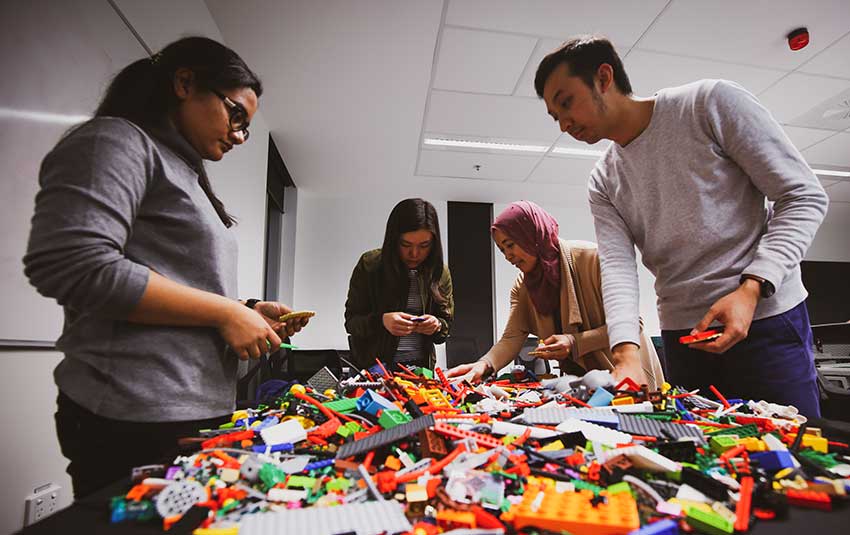The case of the Crawford School’s ‘Graduate Academic Skills and Research’ intensive course
A fundamental tenet of interactive learning is that course redesign be applied through evidence-based decision making and careful consideration of student experience. The Interactive Learning Project (iLEAP) represents a unique opportunity to develop quality online resources through evaluations of existing teaching practices and implementing interactive learning principles.
With this philosophy, iLEAP’s Education Evaluation Team was established in late 2019 to analyse how interactive learning could be best applied to individual courses. The Evaluation team was asked to support the evaluation of the Crawford School’s Graduate Academic Skills and Research intensive course, which sought to effectively transition to a blended and online delivery model.
This early iLEAP project, delivered in February 2020, used formative stakeholder and participant evaluation throughout the project cycle. The team was made up of CAP Academic Skills staff, Library staff and iLEAP staff.
The initial pilot supported face-to-face delivery in an intensive five-week period of smoke, fire and hail, to more than 100 incoming postgraduate students over the summer of 2020. Students gave formative and summative feedback about their experiences with both the online and on –campus components of the pilot.
An initial course review process of formative evaluation was conducted using the ‘Lego Serious Play’ (LSP) framework was facilitated by Dr Stephen Dann (2019 iLEAP fellow). In the educational environment LSP allows participants to express their perspectives through a flattening of hierarchies and the rules-based approach to the sessions enables people to express their thoughts, ideas and values in multiple ways. The medium of the plastic block enables unique insights at times.
In this course review session, the Crawford School’s intensive course in the winter 2019 session, was highly regarded by student participants and their experiences informed the development of the trial. Graduate Academic Skills and Research ran in the summer 2020 session and the trial of online resources gave insights into the strengths and challenges of facilitating interactive learning.
The Education Evaluation Team was tasked with assessing the delivery of online resources and learning to improve the course in the upcoming winter 2020 session. Analysis of existing documentation and resources, and qualitative interviews with relevant stakeholders, formed the basis of an evaluative report.
The findings and recommendations suggested ways to foster interactive learning while also prioritising student experience. As circumstances have unfolded, the recommendations of the pilot study may be highly relevant to a wider audience. Future iterations of the program should also yield helpful insights into student transition experiences in face to face, blended and online learning.
The unprecedented challenges of the 2020 academic year and resulting shift to remote classes have emphasised the importance of evidence-based decision making for learning and teaching. In combining interactive learning principles with technological capabilities, it is important to evaluate what is being provided, if it best serves students going through hardship and uncertainty, and how staff can be supported through the challenging process of designing and developing online and blended teaching and learning.
Claire Brooks is a member of the Education Design (ED) team – one of three teams within the ANU Centre for Learning and Teaching (CLT).
Karl Gwynn is member of the Evaluations team within the Education, Communities and Environments (ECE) team – another one of the three teams within the ANU Centre for Learning and Teaching (CLT).
The Interactive Learning Project (iLEAP) is also based within CLT.
June 2020
Anna Maldoni and Alison Cumming-Thom were instrumental in developing the initial Graduate Skills and Research’ pilot for the Crawford School.

